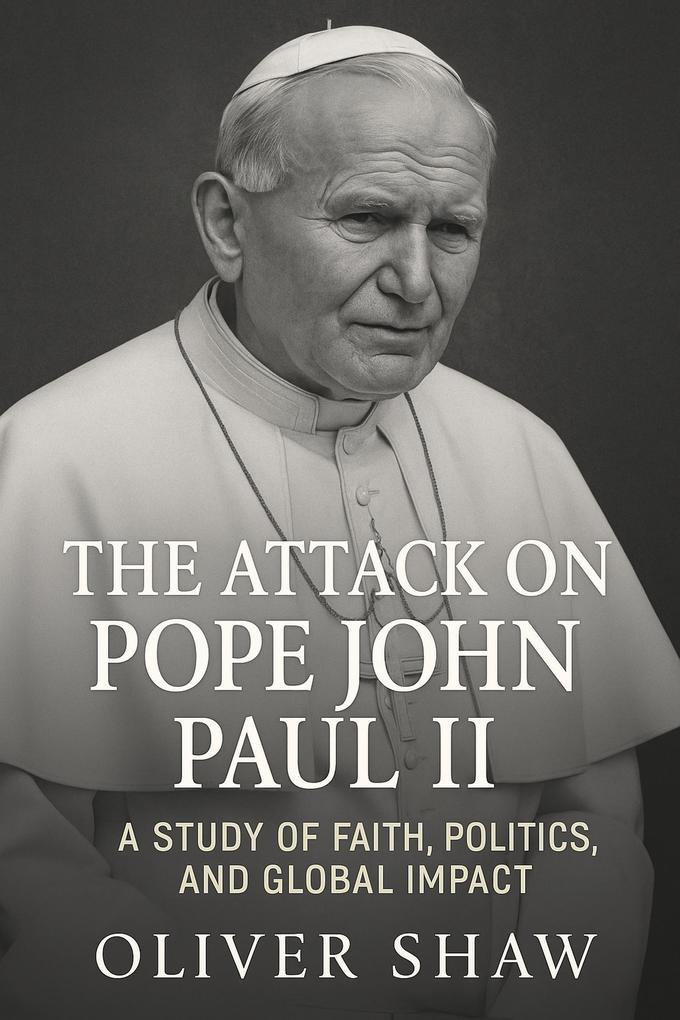
Sofort lieferbar (Download)
This book delves into the dramatic events surrounding the assassination attempt on Pope John Paul II on May 13, 1981, exploring its profound significance not only for the Catholic Church but for global politics and human history. By analyzing the Pope's survival and recovery, the narrative examines the intersection of faith, politics, and the worldwide impact of this pivotal moment. It considers the political tensions of the Cold War, the Pope's outspoken stance against Communist regimes, particularly in Eastern Europe, and his message of forgiveness in the face of personal suffering.
The book further explores the multiple conspiracy theories surrounding the attack, considering the roles of various international actors, from the Soviet Union to radical political movements. It examines the Catholic Church's response to the attack and how Pope John Paul II's actions shaped his legacy, solidifying his influence as a global moral leader. Through deep analysis and reflection on the Pope's response, this study also unpacks how his suffering and resilience became a symbol of peace, reconciliation, and spiritual triumph in an era of division and ideological conflict.
The book ultimately reflects on the Pope's role in inspiring a generation, cementing his place in history as not only a spiritual leader but a transformative political figure whose influence transcended borders and ideologies.
Produktdetails
Erscheinungsdatum
23. April 2025
Sprache
englisch
Dateigröße
0,21 MB
Autor/Autorin
Oliver Shaw
Verlag/Hersteller
Kopierschutz
mit Adobe-DRM-Kopierschutz
Family Sharing
Ja
Produktart
EBOOK
Dateiformat
EPUB
ISBN
9798231433933
Entdecken Sie mehr
Bewertungen
0 Bewertungen
Es wurden noch keine Bewertungen abgegeben. Schreiben Sie die erste Bewertung zu "The Attack on Pope John Paul II: A Study of Faith, Politics, and Global Impact" und helfen Sie damit anderen bei der Kaufentscheidung.









